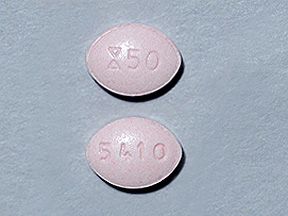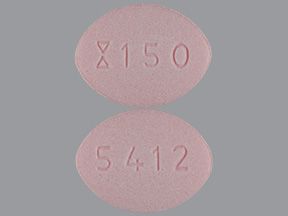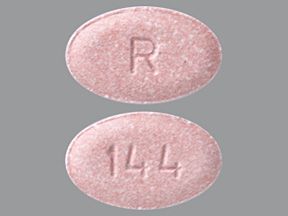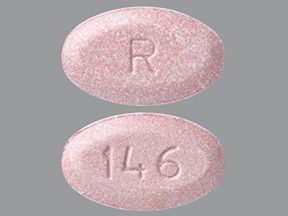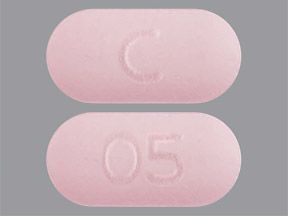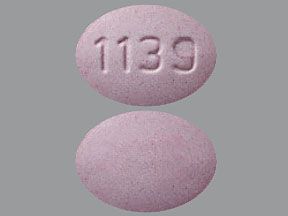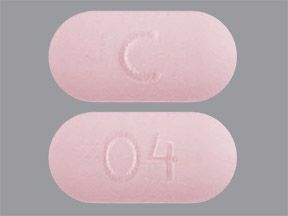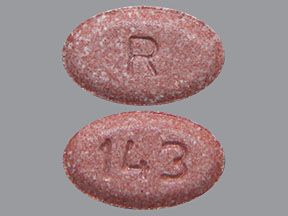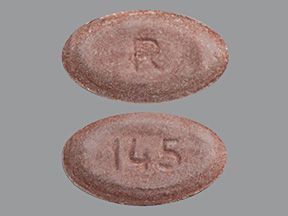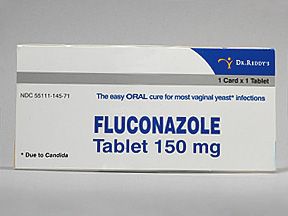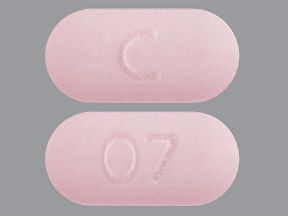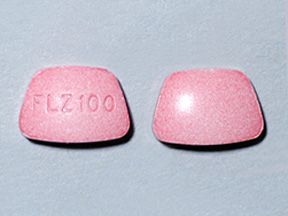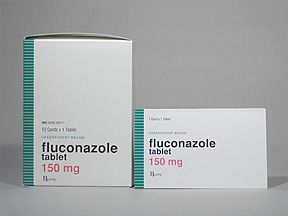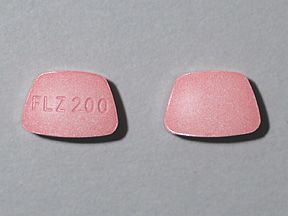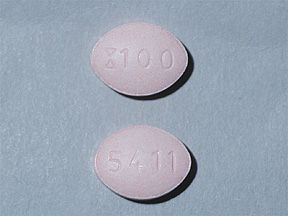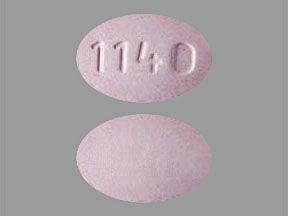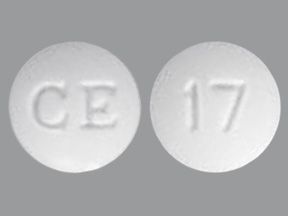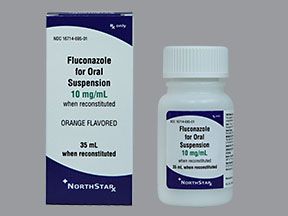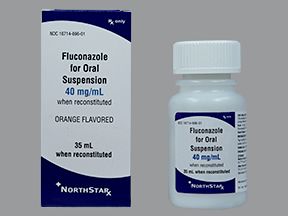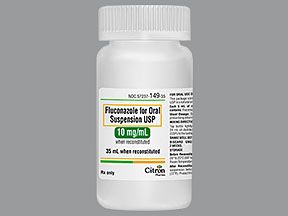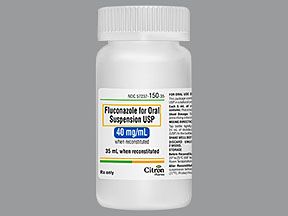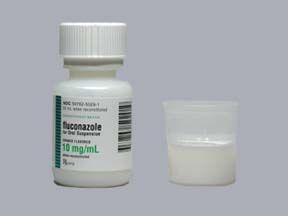- Fluconazole oral tablet is available as both a generic and a brand-name drug. Brand name: Diflucan.
- Fluconazole comes as a tablet or suspension you take by mouth. It also comes in an injectable form that can only be given to you by a healthcare professional. (This article discusses the oral tablet form only.)
- Fluconazole oral tablet is used to prevent and treat candidiasis, a fungal infection. It’s also used to treat meningitis (infection of the brain or spinal cord, or both).
- Liver failure warning. This drug may cause you to develop liver failure. Your doctor may check your liver function with blood tests while you take this drug. If you develop liver failure from taking this drug, it’s usually reversible once you stop taking it.
- Skin rashes warning. This drug can cause a severe rash that can cause death. You should stop taking the drug if you develop any rashes.
- Irregular heart rhythm warning. This drug can change how your heart beats. This change puts you at risk for a life threatening heart rhythm condition called torsades de pointes. Your risk of heart rhythm problems is higher if you were born with a certain heart rhythm condition, you have a low potassium level, or you take antipsychotic drugs or certain antidepressants.
- Adrenal gland problems. This drug can cause you to develop adrenal gland problems. Your adrenal gland produces hormones that affect many normal bodily functions. This problem may be reversible after stopping the drug.
- Fetal harm warning. This drug may cause harm to the fetus if taken during pregnancy. Talk with your doctor if you can get pregnant. You may need to use birth control to prevent pregnancy while taking this drug.
Fluconazole is a prescription drug. It comes as a tablet, a suspension you take by mouth, and an injection that can only be given by a healthcare professional. This article discusses the oral tablet form only.
Fluconazole oral tablet is available as both a generic drug and as the brand-name drug Diflucan.
Generic drugs usually cost less than the brand-name version. In some cases, they may not be available in all strengths or forms as the brand-name drug.
Why it’s used
Fluconazole is used to prevent and treat candidiasis. This condition is caused by infection with one of the many types of the fungus Candida. Examples of candidiasis include vaginal yeast infection, as well as oral yeast infection (thrush).
Candidiasis can also cause infections in other parts of your body, including your throat, esophagus, lungs, and blood. People who have had bone marrow transplants may be treated with fluconazole to prevent candidiasis. This is because their immune systems are weakened, which makes them more likely to become infected with a severe form of candidiasis.
Fluconazole is also used to treat meningitis (infection of the brain and spinal cord) that’s caused by the fungus Cryptococcus.
How it works
Fluconazole belongs to a class of drugs called triazole antifungals. A class of drugs is a group of medications that work in a similar way. These drugs are often used to treat similar conditions.
Fluconazole works by blocking the ability of the fungi Candida and Cryptococcus to reproduce. For people with infections from these fungi, this drug helps to get rid of the infection. For people at higher risk of candidiasis, it helps to prevent infection.
How long it lasts
The effects of fluconazole should last as long as you continue taking the drug. Fluconazole is typically used as a short-term treatment.
Fluconazole typically takes about 6 days to completely leave your body after your last dose. If you stop taking fluconazole, it’s possible to continue experiencing some effects of the drug during this 6-day period. But usually, the drug’s effects end when your treatment ends or soon afterward.
It’s possible for some side effects of fluconazole to last long term, such as heart or liver problems.
If you have questions about how long fluconazole treatment or its effects last, you can talk with your doctor.
As with all medications, the cost of fluconazole can vary. The actual price you’ll pay depends on your insurance plan, your location, and the pharmacy you use. You can refer to this article for details about the cost of fluconazole treatment.
You can also refer to the coupons on this page for possible ways to save on fluconazole oral tablets.
Keep in mind that you may be able to get a 90-day supply of fluconazole oral tablets if you have a condition that requires long-term treatment. If approved by your insurance company, getting a 90-day supply of the drug could reduce your number of trips to the pharmacy and help lower the cost. If you’re interested in this option, check with your doctor, pharmacist, or insurance company.
Save on your fluconazole prescription with Optum Perks
Save on fluconazole without insurance.
Enter your information:
Location
47201
Dosage
150mg fluconazole (1 Tablet)
Save on your fluconazole prescription
Simply show the Optum Perks coupon at your preferred pharmacy and instantly save without using insurance. The coupon doesn't expire so be sure to save it for use with refills.
Retail price refers to the manufacturer’s published list price and is up to date as of 3/2023. Retail and discounted prices are U.S.-only and can vary based on region and pharmacy. We cannot guarantee that the discounted price listed here will exactly match the price at your pharmacy. Please contact your pharmacy for the exact price.
Optum Perks and Healthline are subsidiaries of RVO Health.
Pricing source:Perks.optum.com

Financial and insurance assistance
Financial assistance to help you pay for fluconazole may be available.
Medicine Assistance Tool and NeedyMeds are two websites offering resources that may help decrease the price you pay for fluconazole. They also offer tools to help you find low cost healthcare, as well as educational resources. To learn more, visit their sites.
To learn more about saving money on prescriptions, check out this article.
Mail-order pharmacies
Fluconazole may be available through a mail-order pharmacy. Using this service may help lower the drug’s cost and allow you to get your medication without leaving home.
If recommended by your doctor, you may be able to receive a 90-day supply of fluconazole, so there’s less concern about running out of the medication. If you’re interested in this option, check with your doctor, pharmacist, or insurance company. Some Medicare plans may help cover the cost of mail-order medications.
If you don’t have insurance, you can ask your doctor or pharmacist about online pharmacy options.
Fluconazole isn’t known to cause drowsiness, but it can cause other side effects.
More common side effects
The more common side effects of fluconazole oral tablet depend on how much of the drug you need to take. These side effects can include:
- headache
- diarrhea
- nausea or upset stomach
- dizziness
- stomach pain
- vomiting
- changes in the way food tastes
- severe rash in people with lowered immunity
If these effects are mild, they may go away within a few days or a couple of weeks. If they’re more severe or don’t go away, talk with your doctor or pharmacist.
Serious side effects
Call your doctor right away if you have serious side effects. Call 911 if your symptoms feel life threatening or if you think you’re having a medical emergency. Serious side effects and their symptoms can include the following:
- Liver damage. Symptoms can include:
- yellowing of your skin or the whites of your eyes
- dark urine
- light-colored stools
- severe skin itching
- vomiting or nausea
- Severe rash in people with AIDS or cancer. Symptoms can include:
- skin peeling
- severe rash
- Torsades de pointes (a life threatening heart rhythm condition). Symptoms can include:
- feeling like your heart is skipping a beat (palpitations)
- fast, irregular heart rate
- dizziness
- fainting
- seizures
- Adrenal gland problems. Symptoms can include:
- muscle weakness
- belly pain
- fatigue
- loss of appetite
Disclaimer: Our goal is to provide you with the most relevant and current information. However, because drugs affect each person differently, we cannot guarantee that this list includes all possible dosages. This information is not a substitute for medical advice. Always speak with your doctor or pharmacist about dosages that are right for you.
Fluconazole oral tablet can interact with other medications, vitamins, or herbs you may be taking. An interaction is when a substance changes the way a drug works. This can be harmful or prevent the drug from working well.
To help avoid interactions, your doctor should manage all of your medications carefully. Be sure to tell your doctor about all medications, vitamins, or herbs you’re taking. To find out how this drug might interact with something else you’re taking, talk with your doctor or pharmacist.
Examples of drugs that can cause interactions with fluconazole are listed below.
Drugs that should not be used with fluconazole
There are certain drugs that you should not use with fluconazole. If used with fluconazole, these drugs can cause dangerous effects in your body. Examples of these drugs include:
- Terfenadine. If used with fluconazole at doses of 400 milligrams (mg) or higher, this drug can cause a life threatening heart rhythm condition called torsades de pointes.
- Pimozide, clarithromycin, erythromycin, ranolazine, lomitapide, donepezil, voriconazole, and quinidine. If used with fluconazole, these drugs can cause a life threatening heart rhythm condition called torsades de pointes.
Drugs that increase the risk of side effects
Taking fluconazole with certain drugs raises your risk of side effects from those drugs. Examples of these drugs include:
- Diabetes drugs such as glyburide (Diabeta) and glipizide (Glucotrol XL). Increased side effects can include low blood sugar. This causes symptoms such as sweating and chills, shakiness, fast pulse, weakness, hunger, and dizziness.
- Warfarin (Jantoven). Increased side effects can include bruising, nosebleeds, and blood in your urine or stools.
- Phenytoin (Dilantin). Taking this drug with fluconazole can cause trouble with coordination, slurred speech, and confusion. Your doctor will measure blood levels of phenytoin while you’re taking fluconazole. It’s possible that your doctor will decrease your dose of phenytoin while you’re taking fluconazole.
- Cyclosporine (Neoral), tacrolimus (Prograf), and sirolimus (Rapamune). Increased side effects can include kidney damage. Your doctor will check your blood for signs of kidney damage while you’re taking fluconazole. If you show signs of kidney damage, your doctor may lower your doses of these drugs or stop them completely until your treatment with fluconazole is done.
- Theophylline (Theo-24). Taking this drug with fluconazole can cause muscle cramps, headache, low blood pressure, and seizures. Your doctor will measure blood levels of phenytoin while you’re taking fluconazole.
- Zidovudine (Retrovir). Increased side effects can include headache, tiredness, loss of appetite, nausea, and vomiting.
- Pain drugs, such as methadone (Methadose) and fentanyl (Actiq). The levels of these drugs may be increased in your body when taken with fluconazole. Increased side effects include slower breathing, confusion, and drowsiness.
- Carbamazepine (Tegretol). Increased side effects include nausea, vomiting, unsteadiness, low blood cell counts, severe rash, heart failure, and liver failure.
- Certain calcium channel blockers, such as nifedipine (Procardia), amlodipine (Norvasc), verapamil (Verelan), and felodipine. Increased side effects include low blood pressure, dizziness, confusion, and headache.
- Certain statins, such as atorvastatin (Lipitor) and simvastatin (Zocor). Increased side effects include muscle pain and weakness and raised levels of creatinine in your blood.
- Antipsychotic drugs, such as chlorpromazine, haloperidol (Haldol), and ziprasidone (Geodon). Taking fluconazole with these medications raises your risk of a life threatening irregular heart rhythm condition called torsades de pointes.
- Antidepressants, such as citalopram (Celexa), escitalopram (Lexapro), and paroxetine (Paxil). Taking fluconazole with these medications raises your risk of a life threatening irregular heart rhythm condition called torsades de pointes.
- Heart rhythm drugs, such as amiodarone (Pacerone) and dofetilide (Tikosyn). Taking fluconazole with these medications raises your risk of a life threatening irregular heart rhythm condition called torsades de pointes.
Disclaimer: Our goal is to provide you with the most relevant and current information. However, because drugs interact differently in each person, we cannot guarantee that this information includes all possible interactions. This information is not a substitute for medical advice. Always speak with your healthcare professional about possible interactions with all prescription drugs, vitamins, herbs and supplements, and over-the-counter drugs that you are taking.
Fluconazole oral tablet comes with several warnings
Allergy warning
This drug can cause a severe allergic reaction. Symptoms can include:
- shortness of breath
- coughing
- wheezing
- fever
- chills
- throbbing of your heart or ears
- swelling of your eyelids, face, mouth, neck, or any other part of your body
- skin rash, hives, blisters, or skin peeling
If you have an allergic reaction, call your doctor or local poison control center right away. If your symptoms are severe, call 911 or go to the nearest emergency room.
Do not take this drug again if you’ve ever had an allergic reaction to it. Taking it again could be fatal (cause death).
Warnings for people with certain health conditions
For people with kidney disease: If you have kidney disease or a history of kidney disease, your kidneys may not be able to remove this drug from your body like they should. This may increase the levels of fluconazole in your body and cause more side effects. This drug may also make existing kidney disease worse.
People with liver problems: Fluconazole can cause liver problems. If you already have liver problems, talk with your healthcare professional before taking this drug.
People with high blood sugar levels: The oral suspension form of this drug contains sucrose, a kind of sugar. You should not use this form of the drug if you have a condition that increases your blood sugar level. Talk with your doctor before using this drug if you have high blood sugar levels or a condition, such as diabetes, which can cause high blood sugar levels.
People with abnormal heart rhythms: Using fluconazole can affect your heart rhythm. If you already have an abnormal heart rhythm, taking fluconazole may lead to dangerous heart rhythm problems.
People with certain conditions that lower immunity: If you have certain conditions that lower your immunity, such as cancer, HIV, or AIDS, you’re more likely to get a rash from fluconazole. Your doctor will monitor you for a rash and peeling skin.
Warnings for other groups
Pregnant people: Research in humans has shown adverse effects to the fetus when exposed to doses of 150 milligrams (mg) or higher during pregnancy. In lower doses, research in animals has shown adverse effects. There haven’t been enough studies done to be certain how lower doses of the drug might affect the human fetus.
This drug should only be used during pregnancy in serious cases where it’s needed to treat a dangerous infection in the pregnant person. And it should only be used if the potential risk to the fetus is acceptable given the drug’s potential benefit.
Talk with your doctor if you’re pregnant or planning to become pregnant. You can ask your doctor to tell you about the specific risks to the fetus.
If you become pregnant while taking this drug, call your doctor right away.
People who are breastfeeding: Fluconazole passes into breast milk and may cause side effects in a child who is breastfed. Talk with your doctor if you breastfeed your child. You may need to decide whether to stop breastfeeding or stop taking this drug.
For seniors: The kidneys of older adults may not work as well as they used to. This can cause your body to process drugs more slowly. As a result, more of a drug stays in your body for a longer time. This raises your risk of side effects.
For children: This medication should not be used in people younger than 6 months.
This dosage information is for fluconazole oral tablet. All possible dosages and drug forms may not be included here. Your dosage, drug form, and how often you take the drug will depend on:
- your age
- the condition being treated
- how severe your condition is
- other medical conditions you have
- how you react to the first dose
Forms and strengths
Generic: fluconazole
- Form: oral tablet
- Strengths: 50 milligrams (mg), 100 mg, 150 mg, 200 mg
Brand: Diflucan
- Form: oral tablet
- Strengths: 50 mg, 100 mg, 150 mg, 200 mg
Note: These drugs also come in other forms, but this article focuses on fluconazole oral tablets only.
Dosage for vaginal candidiasis
Adult dosage (ages 18–64 years)
- Typical dosage: One 150-mg dose.
Child dosage (ages 0–17 years)
Use of this drug for vaginal candidiasis has not been approved in children younger than 18 years.
Senior dosage (ages 65 years and older)
The kidneys of older adults may not work as well as they used to. This can cause your body to process drugs more slowly. As a result, more of a drug stays in your body for a longer time. This raises your risk of side effects. Your doctor may start you on a lowered dose or a different dosing schedule. This can help keep levels of this drug from building up too much in your body.
Dosage for nonvaginal candidiasis
Adult dosage (ages 18–64 years)
- Typical dosage: Depending on the type of infection you have, your daily dose could be between 50 mg and 400 mg.
- Treatment length: Treatment can last up to several weeks.
Child dosage (ages 6 months through 17 years)
- Typical dosage: Dosage depends on the weight of the child taking the drug, and the type of infection being treated.
- Treatment length: The length of treatment depends on the infection being treated.
Child dosage (ages 0–5 months)
Use of this drug is not recommended in infants younger than 6 months.
Senior dosage (ages 65 years and older)
The kidneys of older adults may not work as well as they used to. This can cause your body to process drugs more slowly. As a result, more of a drug stays in your body for a longer time. This raises your risk of side effects. Your doctor may start you on a lowered dose or a different dosing schedule. This can help keep levels of this drug from building up too much in your body.
Dosage for candidiasis prevention
Adult dosage (ages 18–64 years)
- Typical dosage: 400 mg, taken once per day.
- Treatment length: Treatment can last several weeks.
Child dosage (ages 0–17 years)
Use of this drug for the prevention of candidiasis in people younger than 18 years has not been approved.
Senior dosage (ages 65 years and older)
The kidneys of older adults may not work as well as they used to. This can cause your body to process drugs more slowly. As a result, more of a drug stays in your body for a longer time. This raises your risk of side effects. Your doctor may start you on a lowered dose or a different dosing schedule. This can help keep levels of this drug from building up too much in your body.
Dosage for cryptococcal meningitis
Adult dosage (ages 18–64 years)
- Typical dosage: 400 mg on the first day. The dose from day 2 on is usually 200 mg to 400 mg, taken once per day.
- Treatment length: Treatment typically lasts 10–12 weeks after a test called a cerebrospinal fluid culture no longer detects fungi.
Child dosage (ages 6 months through 17 years)
Dosage for children is based on weight.
- Typical dosage: On the first day, your child will take 12 mg per kilogram (kg) of body weight. The dose from day 2 on is usually 6 mg to 12 mg/kg, taken once per day.
- Treatment length: Treatment typically lasts 10–12 weeks after a test called a cerebrospinal fluid culture no longer detects fungi.
Child dosage (ages 0–5 months)
Use of this drug is not recommended in infants younger than 6 months.
Senior dosage (ages 65 years and older)
The kidneys of older adults may not work as well as they used to. This can cause your body to process drugs more slowly. As a result, more of a drug stays in your body for a longer time. This raises your risk of side effects. Your doctor may start you on a lowered dose or a different dosing schedule. This can help keep levels of this drug from building up too much in your body.
Special dosage considerations
For people with kidney disease: If you have kidney disease and are supposed to take more than a single dose of fluconazole, your dose may be lowered. Your doctor may give you a first dose of 50 mg to 400 mg, with additional doses that range between that amount and half of that amount, based on your kidney function.
Disclaimer: Our goal is to provide you with the most relevant and current information. However, because drugs affect each person differently, we cannot guarantee that this list includes all possible dosages. This information is not a substitute for medical advice. Always to speak with your doctor or pharmacist about dosages that are right for you.
Fluconazole oral tablet is used for both short-term and long-term treatment. It comes with risks if you don’t take it as prescribed.
If you stop taking the drug suddenly or don’t take it at all: Your infection may not get better or may get worse.
If you miss doses or don’t take the drug on schedule: Your medication may not work as well or may stop working completely. For this drug to work well, a certain amount needs to be in your body at all times.
If you take too much: You could have dangerous levels of the drug in your body. Symptoms of an overdose of this drug can include:
- hallucinations
- paranoia
- abnormal heart rhythm
- blue tint to your skin
- decreased breathing
If you think you’ve taken too much of this drug, call your doctor or local poison control center. If your symptoms are severe, call 911 or go to the nearest emergency room right away.
What to do if you miss a dose: Take your dose as soon as you remember. But if you remember just a few hours before your next scheduled dose, take only one dose. Never try to catch up by taking two doses at once. This could result in dangerous side effects.
How to tell if the drug is working: You should have decreased symptoms of infection.
Keep these considerations in mind if your doctor prescribes fluconazole oral tablet for you.
General
- You can take fluconazole with or without food.
- You can cut or crush the tablet.
Storage
- Store fluconazole tablets below 86°F (30°C).
- Don’t store this medication in moist or damp areas, such as bathrooms.
Refills
A prescription for this medication is refillable. You should not need a new prescription for this medication to be refilled. Your doctor will write the number of refills authorized on your prescription.
Travel
When traveling with your medication:
- Always carry your medication with you. When flying, never put it into a checked bag. Keep it in your carry-on bag.
- Don’t worry about airport X-ray machines. They can’t hurt your medication.
- You may need to show airport staff the pharmacy label for your medication. Always carry the original prescription-labeled box with you.
- Don’t put this medication in your car’s glove compartment or leave it in the car. Be sure to avoid doing this when the weather is very hot or very cold.
Clinical monitoring
Your doctor should monitor your kidney and liver function while you take this drug. Your doctor should have blood tests done to check how well your liver and kidneys are working. If these organs aren’t working well, your doctor may decide to lower your dosage or have you stop taking this drug.
There are other drugs available to treat your condition. Some may be better suited for you than others. Talk with your doctor about other drug options that may work for you.
Disclaimer: Medical News Today has made every effort to make certain that all information is factually correct, comprehensive, and up to date. However, this article should not be used as a substitute for the knowledge and expertise of a licensed healthcare professional. You should always consult your doctor or another healthcare professional before taking any medication. The drug information contained herein is subject to change and is not intended to cover all possible uses, directions, precautions, warnings, drug interactions, allergic reactions, or adverse effects. The absence of warnings or other information for a given drug does not indicate that the drug or drug combination is safe, effective, or appropriate for all patients or all specific uses.

